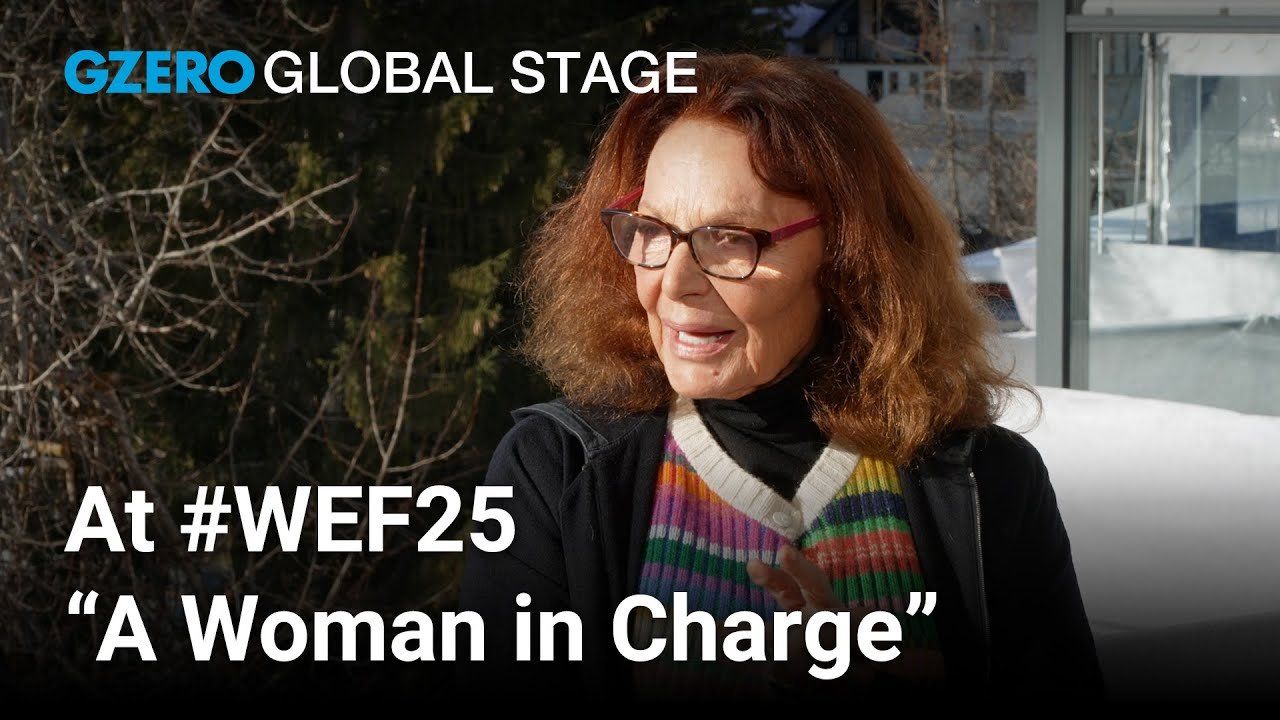January 21, 2025
“I wanted to be a woman in charge,” Diane von Furstenberg said. “And I became a conduit for a certain freedom.”
The iconic fashion designer, who changed women’s apparel 50 years ago with the “wrap dress,” has long been a champion of gender equality. This week in Davos, her work earned her a Crystal Award, presented annually by the World Economic Forum to creators and innovators making a positive impact on society.
DVF, in the rare stratosphere of stars known by just their initials, sat down with GZERO’s Tony Maciulis to talk about bridging the gender gap, the “masculine wave” currently in politics and business, what it means for diversity initiatives, and how she views her legacy decades into her historic career.
She reflected on the power of a “little dress” that built her career, her own inspirations including German actress and singer Marlene Dietrich, and why she has hope for the creative women of Gen Z.
Follow GZERO coverage of Davos here: https://www.gzeromedia.com/global-stage
More For You
Most Popular
With the US leading production and China driving new reactor development, Bank of America breaks down the who, what, where, when, and why behind nuclear’s return. Stay ahead of global energy trends with Bank of America Institute.
Chris, an Army veteran, started his Walmart journey over 25 years ago as an hourly associate. Today, he manages a Distribution Center and serves as a mentor, helping others navigate their own paths to success. At Walmart, associates have the opportunity to take advantage of the pathways, perks, and pay that come with the job — with or without a college degree. In fact, more than 75% of Walmart management started as hourly associates. Learn more about how over 130,000 associates were promoted into roles of greater responsibility and higher pay in FY25.
Last week, at the Munich Security Conference, a group of global technology providers, including Microsoft, announced the Trusted Tech Alliance — committed to shared, verifiable principles for trusted, transparent, and resilient technology across borders. At a moment of economic volatility and zero-sum technological competition, countries and customers are demanding greater accountability from technology providers. The Alliance addresses this by bringing together companies from across Africa, Asia, Europe, and North America around shared commitments: transparent governance, secure development practices, supply chain oversight, open digital ecosystem, and respect for the rule of law — ensuring the benefits of emerging technologies strengthen public trust while driving job creation and economic growth. Explore the Trusted Tech Alliance here.
© 2025 GZERO Media. All Rights Reserved | A Eurasia Group media company.
